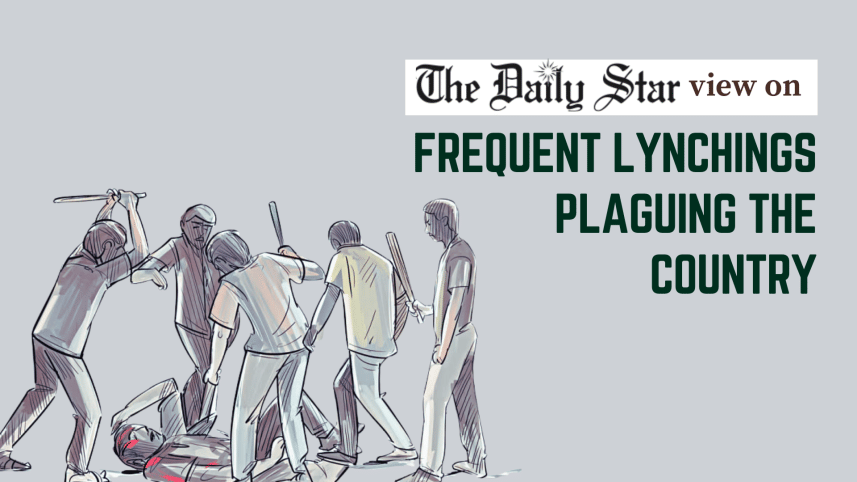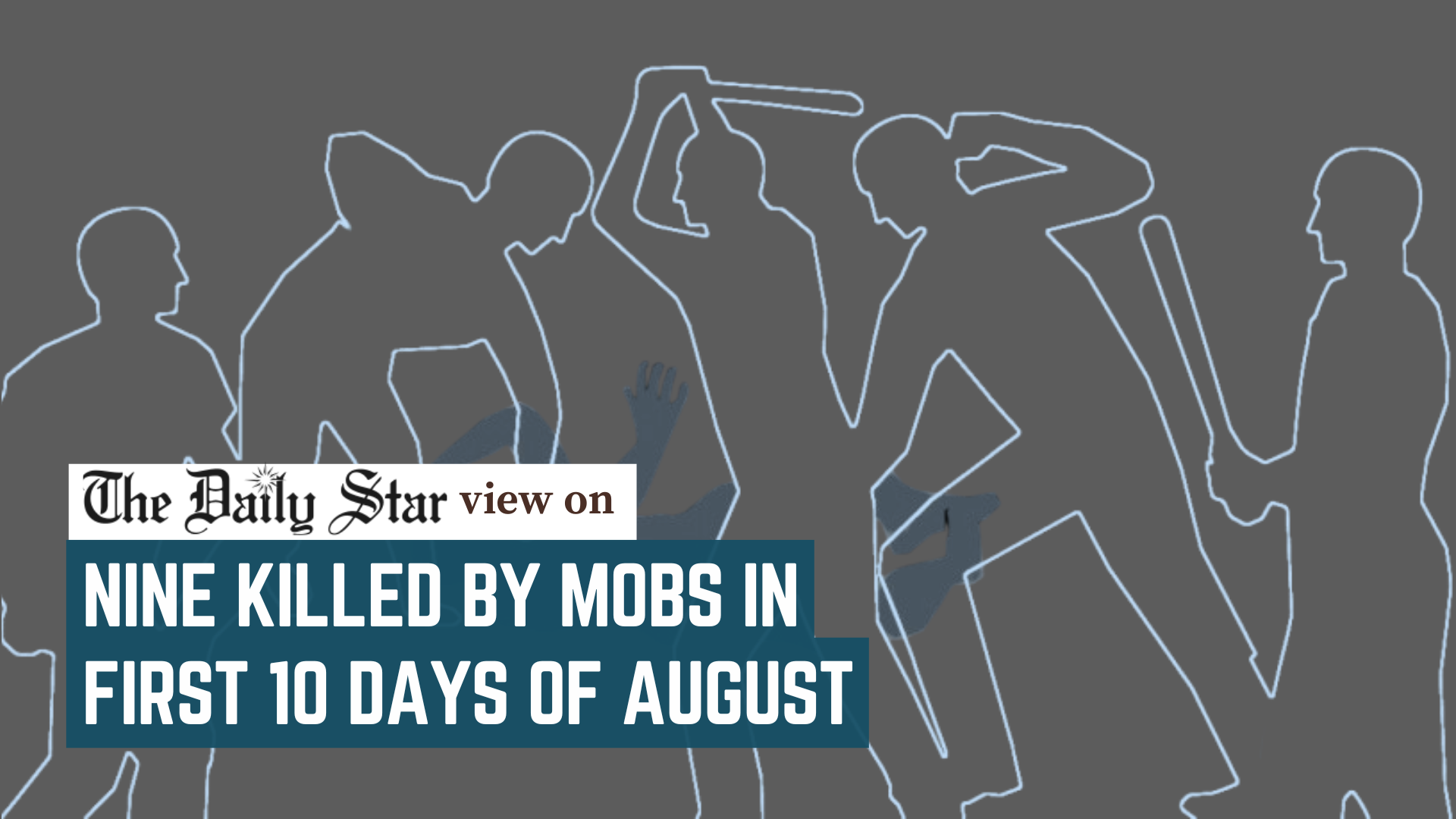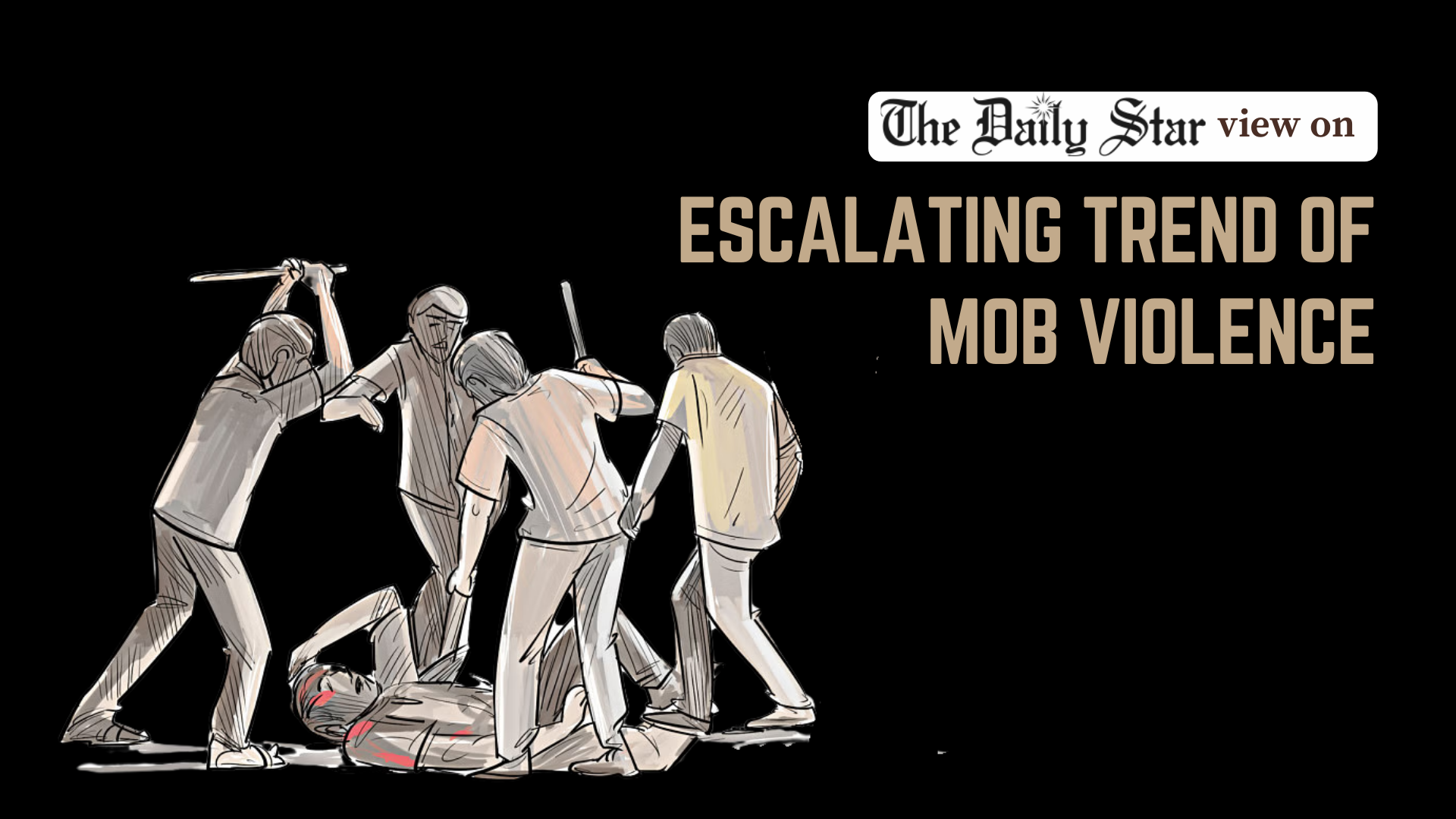Rein in mob attacks before the election

We are disturbed by the persistent occurrence of mob violence in the country. Between January and August this year, there have been 124 deaths from mob attacks as per data from Ain o Salish Kendra. Continuing this trend, just days after a mob exhumed and set fire to the body of a self-proclaimed spiritual leader in Rajbari, three lynchings occurred this Monday, raising doubt about whether government initiatives in addressing this type of violence are at all working. According to a Samakal report, in Dhaka's Mohammadpur, a young man suspected of mugging was killed. In Narayanganj, an alleged robber met the same fate, and in Moulvibazar, a man was lynched for attempting to steal an auto-rickshaw. In each case, ordinary citizens took the law into their own hands.
While there can be no justification for such crimes, it can be said that people often take part in mob violence when they lose confidence in law enforcement to prevent crimes. Indeed, crime statistics by Bangladesh Police show an upward trend in theft and burglary cases between March and July. Crimes like murder, abduction, and robbery continue to persist. Alarmingly, many areas in the capital, too, have become notorious for crime, including brutal muggings. Recently, Mohammadpur made the headlines as the tyranny of teen gangs forced several residents to leave their homes and shift elsewhere. Similarly, Narayanganj made the news because of the activities of highway robbers. Yet, police response continues to frustrate citizens.
Police are evidently still on edge following last year's uprising and its violent aftermath. They often shy away from taking action during mob violence. In fact, there have been at least two recent instances when police came under planned attacks. But the attackers have not been arrested yet. Meanwhile, the army, which was given magistracy power last year to address law and order issues when the police force was not fully functional, has not been effective in controlling mob violence either. At a press conference on Monday, an army official acknowledged this, saying that they are often called in too late to intervene.
These shortcomings from responsible agencies are only fuelling public frustration. The country's worsening economic conditions—rising poverty, food prices, and unemployment—are also creating desperation and consequently leading to increasing mob formation. Furthermore, certain groups are exploiting politics and religion to stir up violence. To address this multi-dimensional crisis, the interim government also needs to adopt a multi-dimensional approach to restore order. Visible and decisive actions are essential to rebuild confidence in the rule of law and ensure stability ahead of the national election.



 For all latest news, follow The Daily Star's Google News channel.
For all latest news, follow The Daily Star's Google News channel. 


Comments